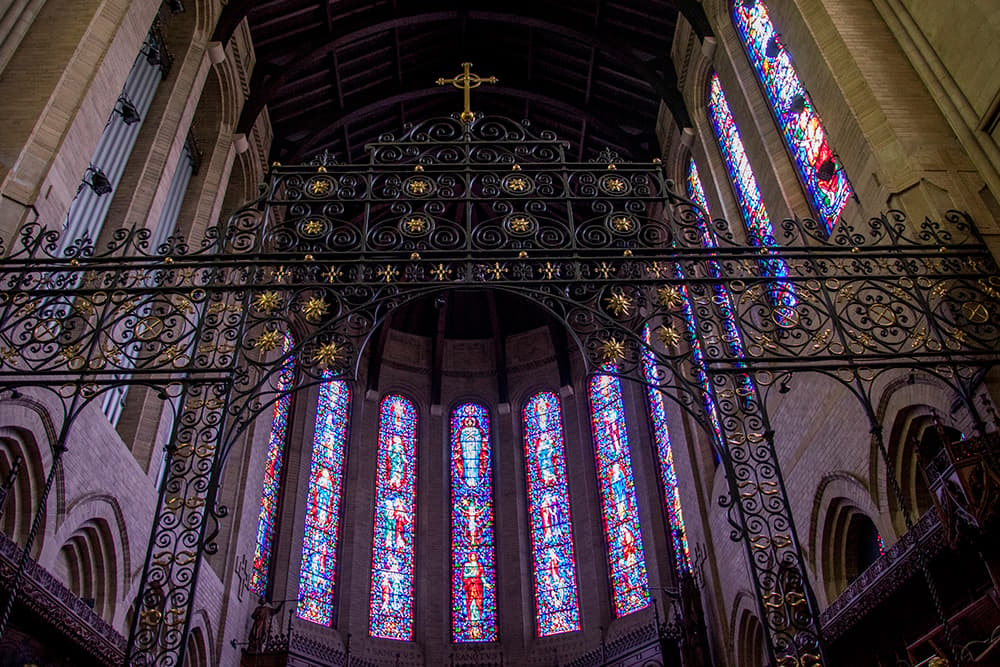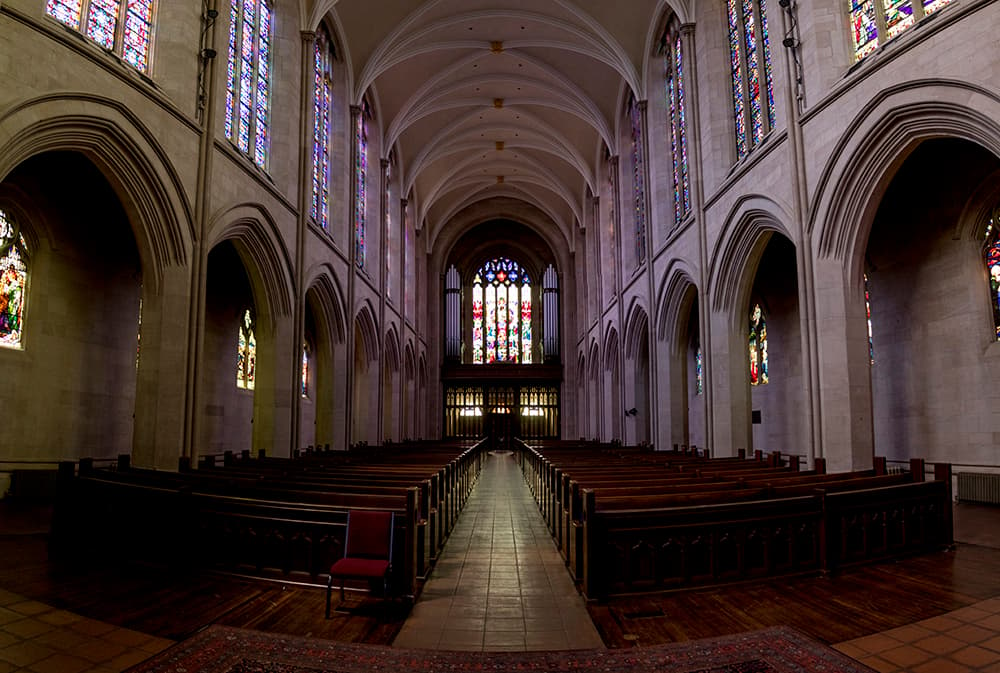
St. John's Cathedral in downtown Denver is an impressive space, its stained glass windows stretching high beneath a great arched ceiling.
But the northern section of its property had long been home to something less divine.
"It was a parking lot," said Rev. Richard Lawson. "And that's why it's compelling. We felt like we could lose those parking spaces and do something that was moral and compelling and interesting."
That "moral and compelling" thing was to build apartments for formerly homeless people. St. John's donated a slice of its land in the heart of Capitol Hill, allowing St. Francis Center to build 49 supportive housing units. The church is leasing out the land for just $1 per year for 55-plus years.
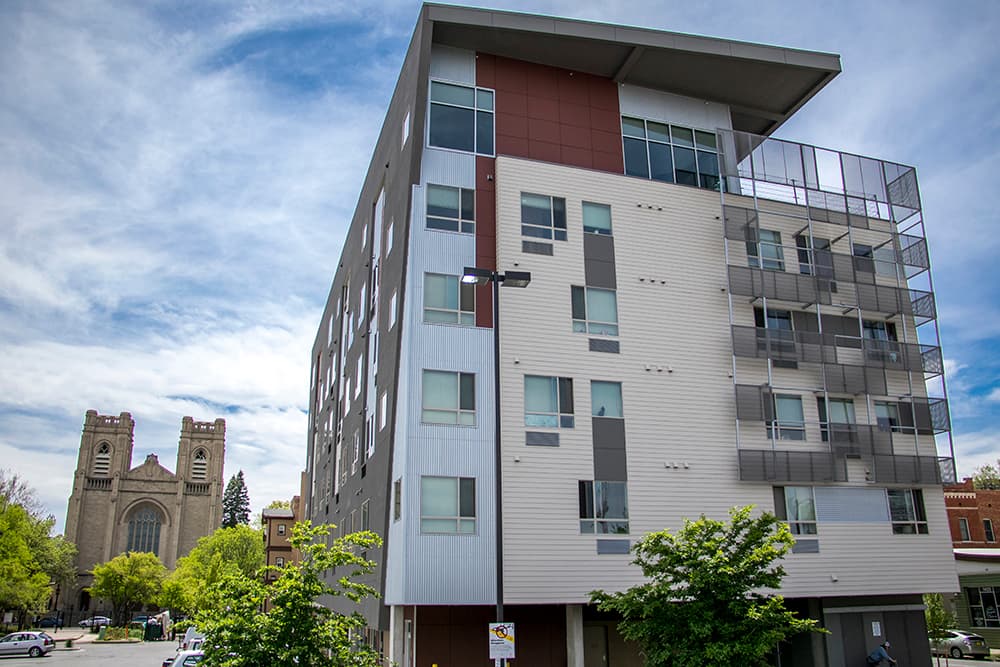
It's only a drop in the bucket for the city's housing needs, but it could be part of a new movement among faith groups to address the affordability and homelessness crises.
"I had an intern last summer start to go county by county through ownership data — and what we found were thousands of undeveloped acres that are owned by faith communities," said Nathan Hunt, an organizer with the Interfaith Alliance of Colorado.
"In five counties in the metro area alone, without Boulder and Broomfield, there’s over 5,000 undeveloped acres owned by churches, synagogues, mosques. That's a massive land bank."
How did that happen?
Many churches bought cheap land at the urban fringe, then found themselves enveloped by the latest wave of development, making their land more valuable and accessible.
In other cases, faith leaders saw the growth of "megachurches" in the 1980s and '90s and decided to buy up acreage, hoping that their congregations would boom too.
"So they bought 15 acres, and that didn’t happen, and that’s fine," Hunt said, "but now they’re mowing a whole lot of property and don’t know what to do with it."
For many, the answer is development. Sometimes, the entire church is sold at market rate. Just down Colfax Avenue, a historic church building is listed for $3.7 million.
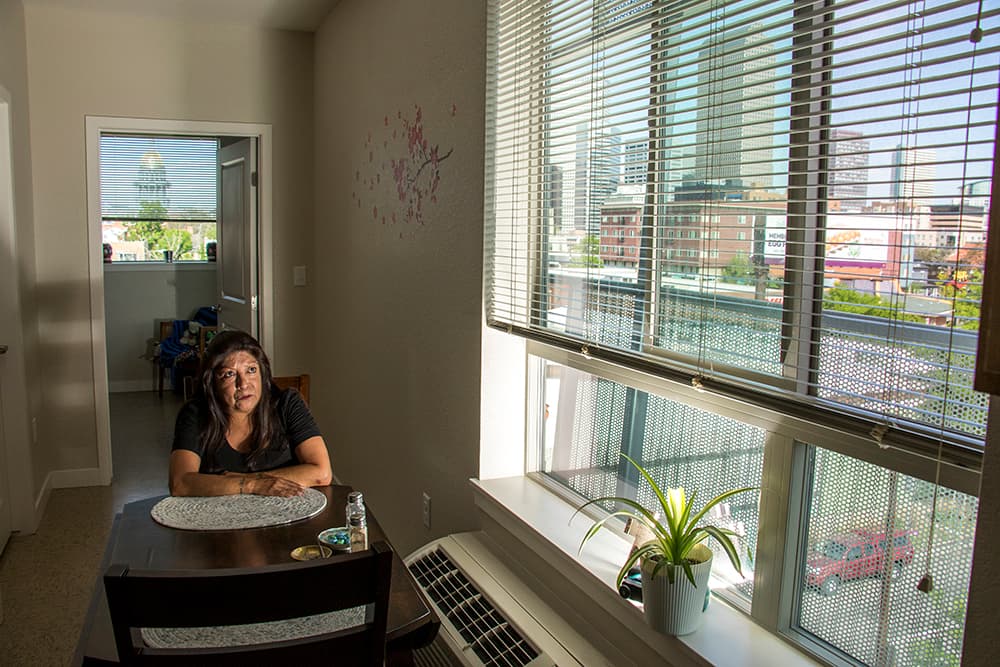
But, increasingly, faith leaders are looking for new ways to use their land.
In all, Hunt already has identified 16 local churches and one mosque that are interested in developing their property for affordable housing purposes.
"It’s not led by anyone. It’s kind of a spontaneous, distributed awareness," he said. "And in order to get to the root of this, we have this huge asset here that we can create housing on."
One of the most visible ones this year will be just east of downtown, where St. Andrew's Episcopal Church plans to turn some of its parking lot into a tiny-home village and then into permanent supportive housing.
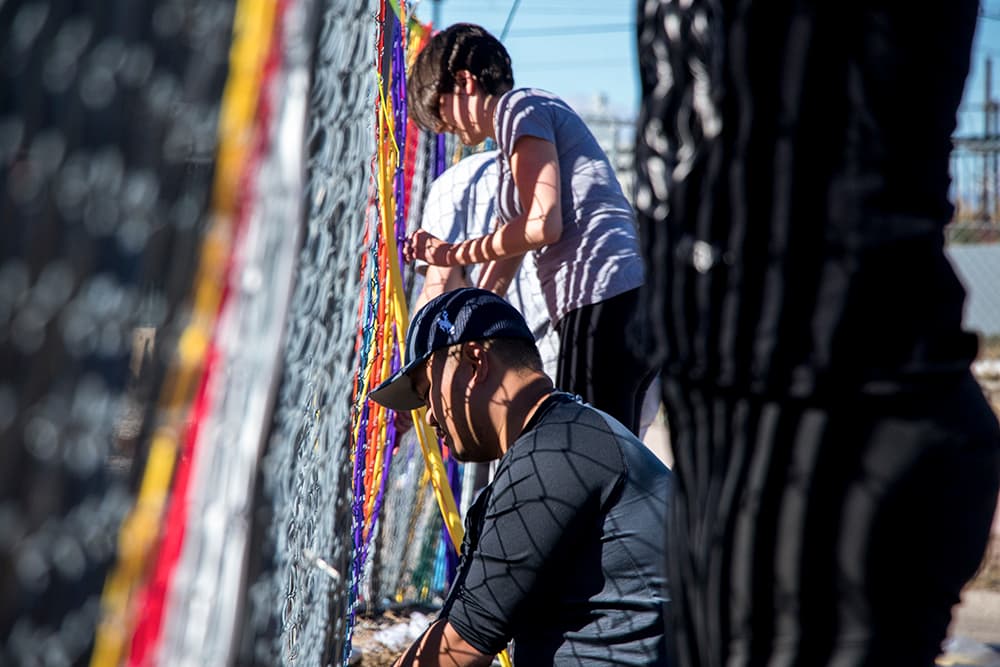
It's part of a social mission that has helped the church recover from years of fading interest, growing its congregation from fewer than 100 to more than 300 people since 2010, according to member Allyson Dodge.
"We are called to love anyone around us, and we are called to lift up those who are fallen. Our mission calls us to provide sanctuary in the city," she said.
"These projects aren’t just words. They’re the physical manifestation of our mission and our vision."
Hunt is trying to tie it all together.
He's now heading up a "Congregation Land Campaign" that aims to help faith communities develop affordable housing on their land.
His group, Interfaith Alliance, will be working with groups like the Colorado Community Land Trust, Cecil Developments and Radian Placematters, the group that designed Denver's first legal tiny-home village.
The idea, Hunt said, is to put faith leaders in contact with the experts who can help them navigate the notoriously complex financial and development systems.
It's one of a few programs around the country with similar goals. Enterprise Community Partners, for example, has taught Baltimore church leaders about the topic. And the model is already proving popular in Denver, with an introductory breakfast in March quickly selling out. A second event today was looking similarly busy.
"I’m actually talking to a group tonight, and to a different one next week," said Tom Luehrs, executive director of the St. Francis Center. "There’s a lot of positive energy in the community about this model that we created with the (St. John's) cathedral."
Some of the churches are interested in selling property close to market rate while still offering a good deal to affordable developers. That could be a way for aging congregations to sustain themselves and their properties, Hunt said.
Others are giving their land away, offering it up in a land bank model, or retaining ownership of a few units.
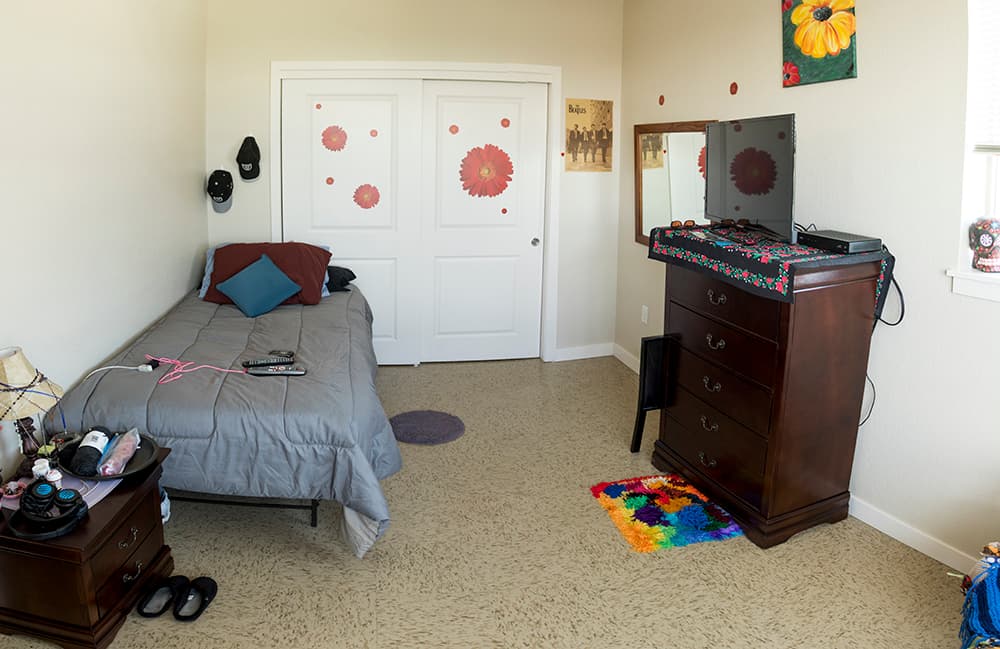
For his part, Hunt traces his interest in the project to the outsized role of "the land" in the Old and New testaments.
"The Israelites, their whole journey is tied to being in the land, being in Egypt ... and being in exile. Their whole identity, which is in covenant with Yahweh -- the third partner in that is always the land.
"And if they stop being good stewards of the land, God," he said, lightly slapping a coffee table, "kicks them out of it eventually."

